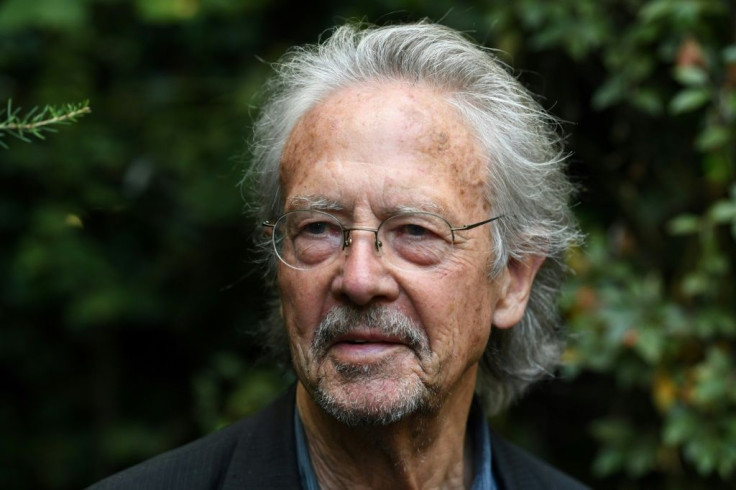Literature Nobel Winner Handke Defends Support Of Serbs

Austrian Nobel literature prize winner Peter Handke on Wednesday defended his vocal support for Serbs in the 1990s wars in the former Yugoslavia, but said he "never bowed down" before Slobodan Milosevic.
The Swedish academy's pick last month triggered outrage in the Balkans and beyond because of Handke's admiration for the late Serbian strongman.
As well as for his literary works, Handke was widely criticised for speaking at the 2006 funeral of Milosevic, who died awaiting trial for genocide, war crimes and crimes against humanity.
Speaking to German weekly Die Zeit, Handke said "of course" he had to be at Milosevic's funeral in 2006.
"He voted against dissolving Yugoslavia in one of the last ballots. His funeral was Yugoslavia's funeral too," Handke said. "Have people forgotten that this state was founded in opposition to Hitler's Reich?"
At the same time, Handke said he "not once bowed down before him -- not internally, not externally."
One journalist wrote "that I supposedly expressed sympathy for Milosevic. Never!" the author told Die Zeit.
The writer was just as unapologetic about his texts, even though he has been accused of minimising Serb war crimes in his 1997 book "A Journey to the Rivers: Justice for Serbia".
"Not one word I have written about Yugoslavia can be denounced, not a single one. It's literature," he said.
Back then, "reporting about Serbia was monotone and one-sided," Handke told Die Zeit.
"It was about justice for Serbia. How could Germany recognise Croatia, Slovenia and Bosnia-Herzegovina when around a third of people on the territory were Orthodox or Muslim Serbs?" Handke said.
"(Serbs) should suddenly be an inferior people in their own country? That had to cause a war," he added.
"Why does no one say the West is responsible, why was a peace conference not called immediately?"
Earlier this month, Bosnian women from Srebrenica -- site of the worst massacre during Yugoslavia's bloody collapse -- protested in the capital Sarajevo against Handke's Nobel award.
They said they would return to Stockholm's embassy each week until the prize is presented on December 10.
Some 8,000 Bosnian Muslim men and boys were slaughtered at Srebrenica by Bosnian Serb forces in July 1995.
The women from the town held up pictures of Handke they said were taken on a visit he made to the hamlet less than a year after the killings.
"The Nobel prize for Handke is a vote in support of our humiliation" by genocide deniers, they wrote in a letter to the Swedish king and queen that they handed to the country's ambassador.
© Copyright AFP 2024. All rights reserved.











